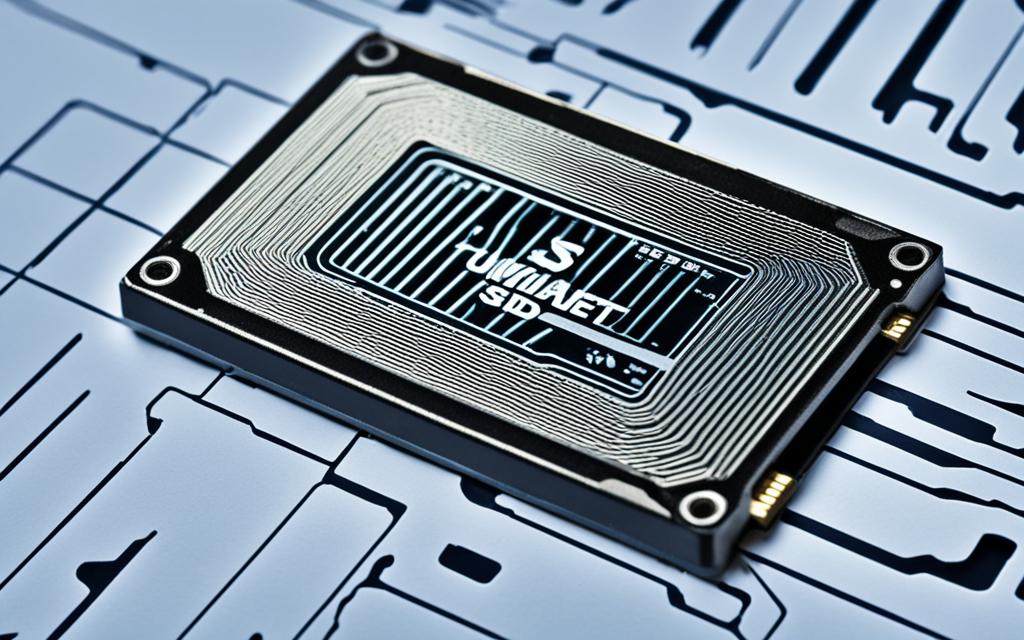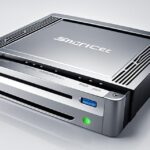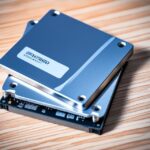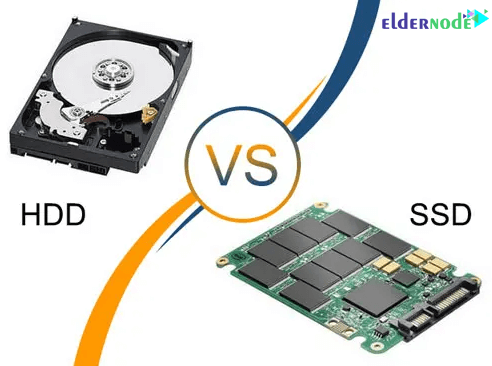Table of Contents
Many people are curious if magnets can impact SSDs, igniting lively discussions. To grasp this, it’s imperative to compare SSDs with older storage types like HDDs. Unlike floppy disks, SSDs are not easily harmed by magnets thanks to modern technology.
This brings us to the heart of SSDs and why they’re safe from magnetic fields. By investigating how SSDs work, we can dismiss many myths about them being vulnerable to magnets. This clarification helps everyone understand SSDs’ magnetic resistance better123
Key Takeaways
- SSDs are inherently designed to resist magnetic fields, unlike HDDs.
- Common magnets, like those found in households, do not affect SSD performance.
- Myths about SSD vulnerability to magnets are unfounded and misleading.
- Proper disposal methods for SSDs differ significantly from HDDs.
- Technological advancements have made SSDs more affordable and accessible.
Understanding Solid State Drives (SSDs)
Solid State Drives, or SSDs, are changing the way we store data. They use flash memory, which needs no magnetic parts. This lets SSDs keep data without the moving parts found in Hard Disk Drives (HDDs).
How SSDs Store Data
SSDs store data on memory chips for quicker access and better durability. They do not use spinning disks like HDDs. Instead, they use electronics to write information. This makes them faster and less likely to fail due to no moving parts.
Differences Between SSDs and Hard Disk Drives (HDDs)
SSDs and HDDs differ mainly in how they handle data. HDDs can lose data through magnetic interference. Unlike HDDs, SSDs face no risk from common magnets. This makes them safer for data storage in everyday environments4.
Advantages of SSD Technology
SSDs have many benefits, including speed, less weight, and lower power use. They are perfect for both personal and business use. Their reliability and longer life span set them apart from HDDs5.
The Impact of Magnets on Electronic Devices
Magnets can greatly affect electronic devices in ways we might not realise. Their magnetic fields impact goes beyond common knowledge, especially in terms of risks to data stored on traditional hard drives (HDDs). Unlike HDDs, SSDs rely on flash memory chips. These chips don’t use magnetism to store data, which means they’re safe from such dangers3. So, while HDDs could have problems with strong magnets, SSDs keep working well without trouble.
How Magnetic Fields Affect Data Storage
Strong magnets can corrupt data on HDDs because these drives store data using magnetism. In contrast, solid state drives don’t use magnets to work. This makes them invulnerable to magnetic interference6. Tests show that USB drives and SSDs can handle strong magnets without losing data. This proves their high resistance and integrity7.
Strong Magnets and Their Potential Risks
Even though smartphones use small magnets for key features, strong magnets could still interfere temporarily. This interference affects things like the digital compass7. Users should be careful as strong magnets might mess with apps that need the compass to work properly. Even though some believe magnets can erase data on devices, SSDs don’t face this issue under normal use3.
Do Magnets Affect SSDs?
Much interest surrounds how magnets interact with solid-state drives (SSDs). Unlike traditional storage, SSDs use flash memory technology. This makes them very good at resisting magnetic fields.
Why SSDs Are Less Susceptible to Magnetic Fields
SSDs are built differently from hard disk drives (HDDs), making them less affected by magnets. Their design involves interconnected memory chips that keep data safe even without power. To interfere with SSD storage, a magnet must be much stronger than those found at home4. Small, everyday magnets, like the ones in speakers or fridge magnets, do not pose a risk to SSDs2. It takes a magnet powerful enough to influence the electrons in flash memory—similar to pulling iron from your body—to cause any harm, says Bill Frank from the CompactFlash Association1.
Tests and Studies Confirming SSD Resilience
Studies have shown that regular magnets cannot harm SSDs. These studies prove SSDs can handle tough conditions, including magnetism, static electricity, and physical impacts4. HDDs, on the other hand, need strong magnets for data deletion. This method does not work on SSDs because they don’t rely on magnetic data storage1.
| Device Type | Magnet Susceptibility | Safe Magnetic Field Level |
|---|---|---|
| SSD | Very Low | High Gauss Required |
| HDD | High | Normal Magnetic Field Level |
For safely disposing of SSDs, certain methods ensure that sensitive info is protected. One effective method is using a device like the Crunch 250 Hard Drive Destroyer. It makes sure data on SSDs cannot be brought back2.
Myths and Misconceptions About SSDs and Magnets
Many people think solid state drives (SSDs) get damaged by magnets, like old hard drives. But SSDs use flash memory chips that don’t need magnetic encoding. So, degaussing, which works on hard disk drives (HDDs), doesn’t affect SSDs8.
Debunking Common Myths
Some believe degaussing can delete data on an SSD. This is wrong because SSDs use smart techniques to spread data evenly. This makes fully erasing data with magnets almost impossible. Plus, SSDs can handle normal magnetic fields without any harm8.
Understanding the Nature of SSD Protection
SSDs are great at handling shocks and vibrations without losing data9. They don’t have moving parts, making them more reliable under stress. Technologies like 3D NAND make SSDs even more dependable and efficient. Knowing this helps clear up false ideas about magnets and SSDs. It highlights how key it is to protect our data today9.
Safe Disposal Methods for SSDs
As tech gets better, we must find good ways to throw away SSDs. These drives often hold important data, and tossing them out carelessly can risk data leaks. It’s key to know how to safely dispose of SSDs to keep data secure.
Why Degaussing Is Ineffective for SSDs
Degaussing is a go-to for wiping data off regular hard drives. Yet, it doesn’t work on SSDs. Because SSDs use flash memory, magnets don’t really affect them. They can’t properly erase the data10. SSDs are different from old hard drives, so they need other methods to get rid of data for good. Standard software for erasing data might not do the job fully, sometimes leaving data that can be found again10.
Physical Destruction: The Most Secure Option
If you want the safest way to dump an SSD, destroy it physically. You can shred it or use tools like the Crunch 250 Hard Drive Destroyer. This makes sure the drive and its data are totally destroyed10. It’s very important to follow data protection laws to avoid the risk of leaking data10. Though destroying devices like this can be pricey, it’s worth it to protect personal or business info.
| Disposal Method | Effectiveness | Notes |
|---|---|---|
| Degaussing | Ineffective | Minimal impact on SSD data erased |
| Standard Erasure Software | Partially Effective | Leaves recoverable traces |
| Physical Shredding | Highly Effective | Guaranteed complete data destruction |
| Crunch 250 Hard Drive Destroyer | Most Secure | Shatters memory chips beyond recovery |
Choosing the best way to dispose of SSDs helps destroy data properly. This keeps important information safe from getting out11.
Conclusion
The study of SSDs and magnetic fields has shown how well modern storage tech works. People used to worry that magnets could damage data in these devices. But SSDs don’t get affected by magnets because they use flash memory chips and don’t have moving parts1213. So, SSDs are more durable than old hard drives. They can access data faster and handle drops better.
However, protecting data on SSDs is key. To keep sensitive info safe, use tools made for securely wiping SSDs or destroy them if needed1213. Taking steps to securely erase or destroy SSDs prevents others from getting your data. It’s all about caring for SSDs as much as any valuable digital property.
To wrap up, knowing about SSDs helps people choose the best way to protect their data. Learning about SSD strength and safe use means better storage choices and confidence in keeping data safe.
FAQ
Do magnets affect SSDs?
No, SSDs aren’t harmed by magnets. They store data differently, using flash memory. This makes them strong against typical magnetic fields.
What makes SSDs less susceptible to magnetic fields?
SSDs work with memory chips that keep data safely. They don’t need magnetism to work. This design keeps them safe from magnetic troubles.
Can everyday magnets damage my SSD?
Common household magnets don’t hurt SSD performance. Only very strong magnets might cause issues.
Is degaussing a safe method to erase data on SSDs?
Degaussing doesn’t work on SSDs since they don’t use magnetic storage. For safe SSD disposal, you need to physically destroy them. Shredding is one way to do it.
How do SSDs compare to HDDs regarding resistance to magnetic forces?
SSDs are much better at resisting magnetic forces than HDDs. HDDs use magnetic disks for storing data, which magnets can damage.
What should I do for secure disposal of an SSD?
To safely get rid of an SSD, destroy it physically. You can use devices made to break hard drives or shredders.
Are there any myths surrounding SSDs and magnetic fields?
Yes, one myth is that magnets equally harm all storage devices. Research shows SSDs handle magnetic forces better than HDDs.
What are the advantages of SSD technology?
SSDs have many benefits. They allow quicker data access, are more reliable without moving parts, and better withstand physical shocks.
How can I ensure the longevity of my SSD?
Keep your SSD lasting longer by managing data well. Avoid too many write cycles. When it’s time to discard it, do so safely with methods like shredding.
Source Links
- https://www.oactechnology.com/blog/magnets-destroy-hard-drives/ – Do Magnets Destroy Hard Drives?
- https://www.veritysystems.com/news-blog/can-an-ssd-be-degaussed/ – Can an SSD be degaussed?
- https://computercity.com/hardware/storage/are-ssds-affected-by-magnets-and-debunking-other-common-myths – Are SSDs Affected by Magnets? And Debunking Other Common Myths – ComputerCity
- https://medium.com/@veritysystems/are-ssds-affected-by-magnets-217f35d189c1 – Are SSDs affected by magnets?
- https://datarecovery.com/rd/do-magnets-damage-solid-state-drives/ – Do Magnets Damage Solid-State Drives? – Datarecovery.com
- https://www.magnetsource.com/blogs/blog2/understanding-magnet-myths-facts – Understanding Magnet Myths & Facts
- https://www.stanfordmagnets.com/will-magnets-affect-the-phone-or-hard-disk.html – Will Magnets Affect The Phone Or Hard Disk? | Stanford Magnets
- https://medium.com/@veritysystems/degaussin-can-an-ssd-be-degaussed-635dd4f47f38 – Can an SSD be degaussed?
- https://bulkmemorycards.com/top-10-myths-on-flash-memory-debunked/ – Top 10 Myths On Flash Memory: Debunked – Everything But Stromboli
- https://medium.com/@veritysystems/how-to-properly-destroy-an-ssd-6-ways-not-to-do-it-49e471af485e – How to Properly Destroy an SSD and the 6 Ways Not to Do It
- https://www.backblaze.com/blog/how-to-securely-recycle-or-dispose-of-your-ssd/ – How to Securely Recycle or Dispose of Your SSD
- https://phiston.com/how-to-destroy-ssd-drives-and-does-degaussing-work-on-them/ – How to Destroy SSD Drives (And Does Degaussing Work on Them?)
- https://darwinsdata.com/can-you-erase-a-solid-state-drive-with-a-magnet/ – Can you erase a solid state drive with a magnet? – Darwin’s Data








